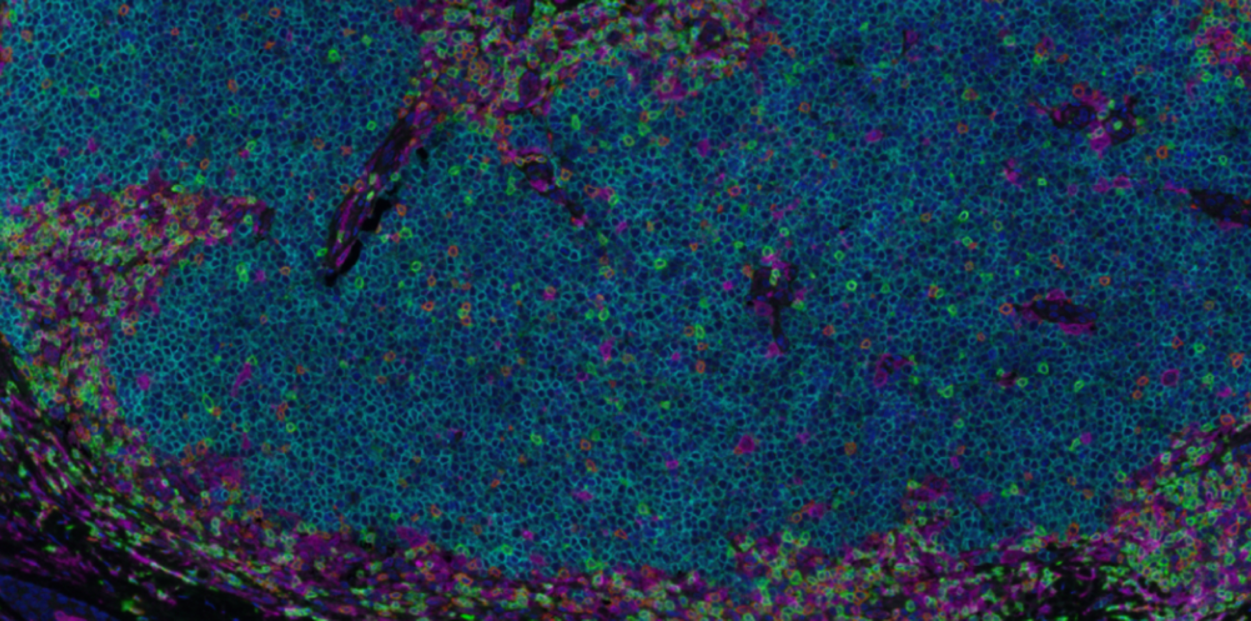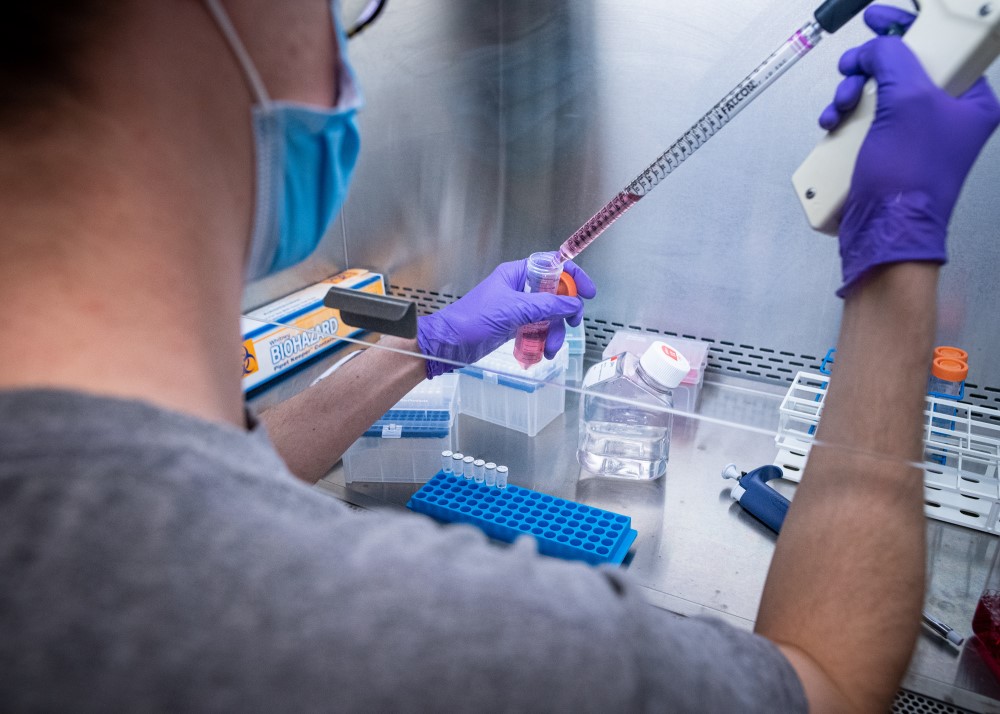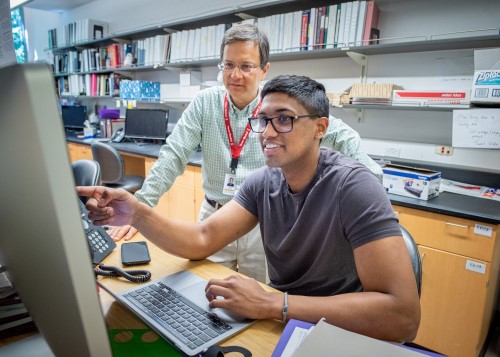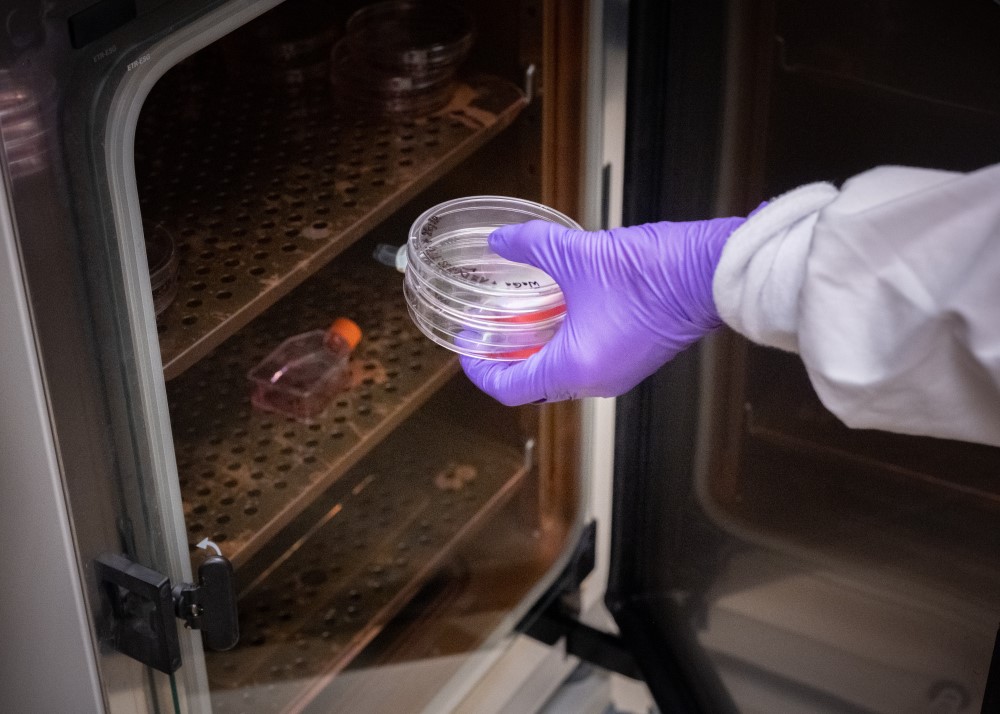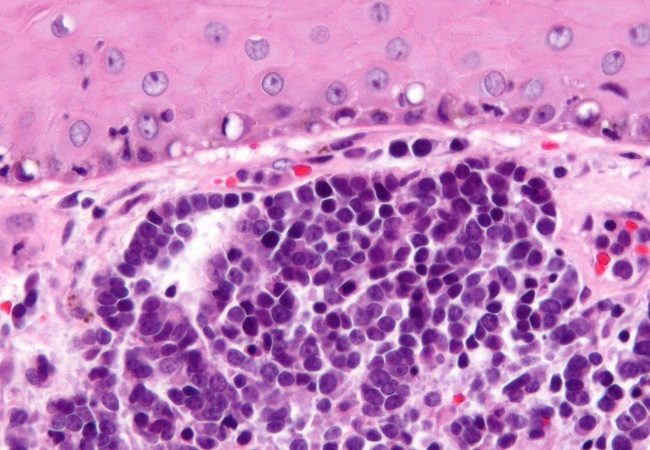DRIVING INNOVATION IN DERMATOLOGY
UW Dermatology is one of the top funded research departments in the nation in National Institutes of Health (NIH) funding. Our faculty and investigators conduct cutting-edge basic research and clinical trials and publish in the world’s leading dermatologic journals on skin, hair and nail disorders and diseases.
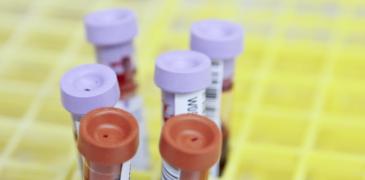
Faculty Research Interests
Faculty investigators have broad research interests, from basic science research related to dermatology and skin diseases, as well as translational research and clinical trials.
learn more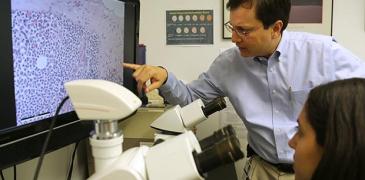
Research Institute & Laboratories
The Department of Dermatology is home to the Merkel Cell Carcinoma Collaborative (MC3) Institute and two labs that provide national stewardship on novel skin conditions, including cancer, and innovative tracking and treatment modalities.
learn mor
Featured Publication
How do we teach and talk about sun safety for children of all skin tones? Resident Dr. Anna Tappel and team have analyzed this question in a recent Pediatric Dermatology article: "Fair‐y Tales: An analysis of children’s books about sun safety." The authors found 17 children's books mentioning at least one sun safety practice. Most books featured several, but few featured all, of the AAD's sun protection guidelines, and there is much room for improvement in representing darker skin tones.
Research By the Numbers
$18.5 M — Current Grant Funding
46,000+ — Total Citations
7 — 2020 Publications
UW Derm Publications 2015-2020
The UW Derm team has been actively expanding our research productivity. Over the last 5 years, dermatology faculty, trainees and lab members have doubled their number of scholarly publications from 34 in 2015 to 72 in 2020.
Publications accounted for have at least one UW Derm affiliated author at the time of publication. Many publications have multiple UW Derm co-authors as well as co-author collaborators from within the UW Medicine system, the dermatology community in Seattle and across the nation. Of the articles published between 2015-2020, almost 40% were published in “high-impact” journals in dermatology, journals that are highly cited by fellow researchers in the field.
Individual articles are also widely accepted and referenced by fellow researchers, with all articles published from the Department having been cited by over 46,000 other articles.
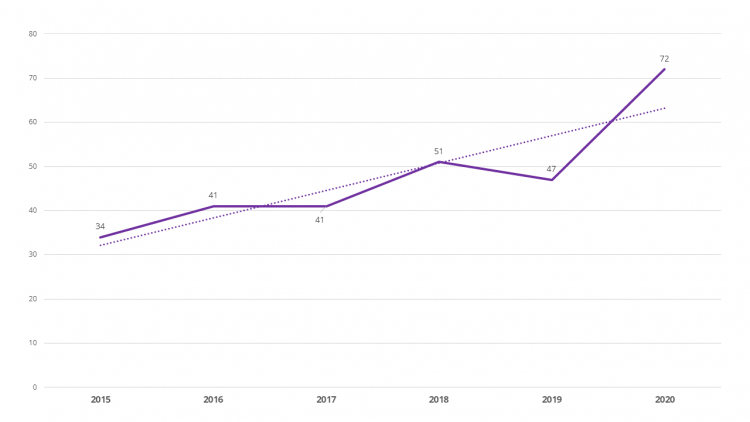
Active Research Projects
The Department of Dermatology currently has 16 active industry, NIH and foundation funded research projects and clinical trials, and faculty and trainees are currently pursuing independent research and scholarly work on over 100 projects and topics. Projects focus in a number of areas related to dermatology, with some specifically including:
- Quality improvement projects including education and process improvements in dermatology (including teledermatology, interpreter services, volunteerism, mentorship and professional stewardship);
- Gender-equity among academic dermatologists and trainees;
- Dermatology needs for skin of color and LGBTQ community members
- New therapeutic and diagnosis strategies for skin conditions including hidradenitis suppurative, Liveoid vasculopathy, t-cell lymphoma, melanoma, and Merkel cell carcinoma.
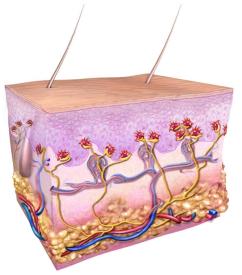
Merkel cell carcinoma
The Nghiem laboratory is simultaneously pursuing over 40 research questions related to the diagnosis, treatment and prevention of Merkel cell carcinoma. Some of their recent developments include changing the practice standards related to the surgical treatment of MCC and recent updates to the suggested approach to imaging for management of MCC in newly diagnosed patients. The team is also working to develop a therapeutic vaccine to prevent recurrence of MCC in patients for which initial surgery and/or radiation removes all evident cancer.
Dermatology Residency Research Track
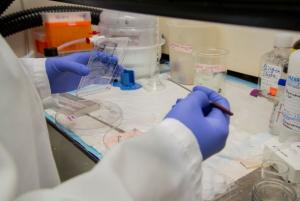
Overview:
We offer a 3+1 research track at the University of Washington Department of Dermatology. Residents in this track complete a regular, clinical dermatology residency, with protected time each year to focus on research as detailed below. At the end of the 3 years, the resident will sit for the applied board exam with their cohort. In the 4th year, the candidate is appointed to an Acting Instructor faculty position and will typically have a half to full clinical day per week (based on trainee choice), with the balance of their time dedicated to research.
Year 1:
- 2 weeks to connect with mentors and prepare a plan for a research career path. Residents use their 10 paid professional leave days (separate from vacation time) for this non-clinical time.
- Attendance at the Society for Investigative Dermatology (SID) Future Leaders Retreat and the SID Annual meeting is encouraged and supported by the Department.
Year 2:
- 2 weeks of dedicated research time. Up to 2 additional weeks may be considered and granted if needed for professional development, at the Program Director and Department Chair’s discretion.
- SID meeting attendance
Year 3:
- 1 month dedicated time for research/grant preparation. Up to 2 additional weeks may be considered and granted if needed for professional development, at the program director and department chair’s discretion.
- Sit for Applied Board Exam with residency cohort
Year 4:
- Acting Instructor faculty position
- Half or full day of clinic to supplement postdoctoral salary
- Expectation of partial salary support from chosen lab and / or a grant, fellowship, or a career development award from various organizations (e.g., NIH T32/F32, Dermatology Foundation, American Skin Association, National Psoriasis Foundation, Pediatric Dermatology Research Alliance)
- Guaranteed remaining salary support for year 4 from the Department
There is no separate application process (nor NRMP ID) for research track dermatology residency candidates. Interested candidates should apply for one of our regular positions. We would be happy to help arrange research-focused interviews with potential mentors.
Undergraduate research
DERM 499 Undergraduate Research (Independent Study) offers undergraduate students the opportunity to engage in laboratory research within the Department of Dermatology under the direct supervision of UW faculty. Through independent research projects, students apply and integrate knowledge from previous coursework, analyze scientific literature, and present their findings in written or oral formats. This course provides hands-on experience in dermatological research, fostering critical thinking and scientific communication skills.



